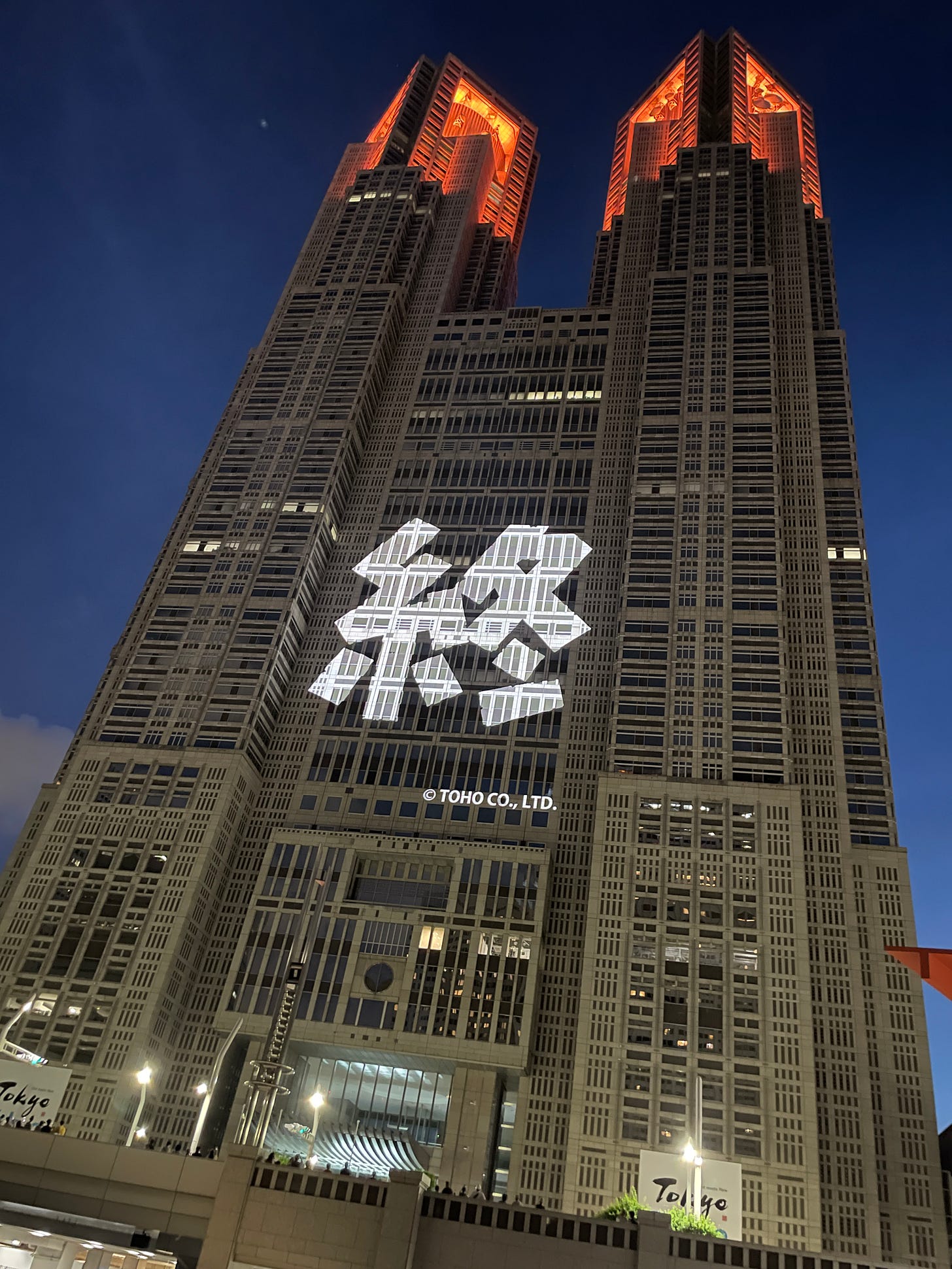Goobers, Godzilla, and Governors
Tokyo’s quest to find a new leader grinds to a conclusion
After reading last week’s essay about the weirdness of the Tokyo gubernatorial elections, you might wonder how things turned out. First things first: gubernatorial. I love letting this word roll off my tongue, but the initial syllable, I learned from an astute listener, is actually pronounced rhyming not with “gubber,” but rather fittingly, “goober.” Pu…




